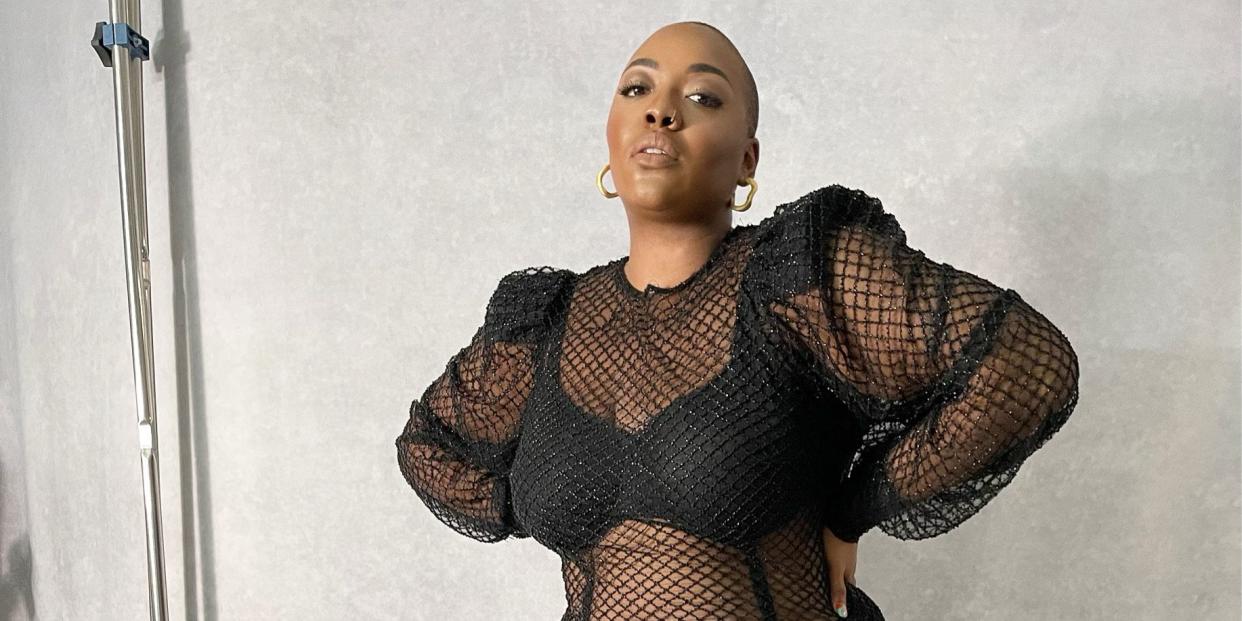Why we need to stop using ‘you’ve lost weight’ as a compliment

Every January we are bombarded with the same messaging: be more toned, be stronger, fitter and healthier. Really, what this translates as, regardless of how it’s dressed up, is a call to be slimmer, to lose weight. In the eyes of society, an aspirational body is still a thin one. As a plus-sized model this is something that I have discussed a lot over the years. The last 12 months have not been easy on anyone and, for a variety of reasons, I found myself deeply, unhappily stressed. As a result, I lost a considerable amount of weight in a short period of time.
The comments surrounding my weight loss have been congratulatory, as if shrinking myself was somehow worthy of praise. These responses, however well-meaning, highlighted to me the ongoing and ever present biases there are towards larger bodies. The ‘well dones’, ‘congratulations’ and ‘you look so good’ in reference to my stress-induced, unintentional weight loss filled me with a great deal of sadness. They indicate that taking up space is still such a prolific problem within our society. People took my smaller size as a sign that, finally, I was ‘taking care of myself’. It implies that I wasn’t good enough, attractive enough or desirable enough before. The message was tacitly obvious - that once you lose weight, then and only then, will you be complimented on how great you look.
We may give a good game about body-positivity, but these compliments show that the most socially acceptable physique is still a slim one and to become smaller versions of ourselves is a positive step. Deep unlearning has to take place on a societal level to break these taboos that are so etched into our subconscious: weight loss does not equate to being happier. It also does not define our self-worth or success rates. I have noticed that weight loss is often described as a journey, as though there is a correct destination.
Our weight as human beings fluctuates throughout our lives for a number of reasons. As we grow older, our bodies change and evolve as we do. Weight loss doesn’t always happen intentionally, or out of a desire to be deemed ‘healthier’ or to ‘be more attractive’. Weight loss can be a consequence of stress or an underlying health issue - mental or physical. It can be a sign that something more serious might be happening, that someone might be struggling.

Complimenting weight loss is inherently dangerous. It implies that the slimmer version of you is an improvement on the one before. This backhanded praise is harmful to all people, but especially to those who may have overcome eating disorders, or young girls and boys growing up who are just developing and learning about their growing bodies. It encourages and validates disordered eating. It was when I was in the midst of my own eating disorder that I too offered similar comments to those who I thought had shed a few pounds. I was impressed by what I saw as an achievement because I viewed my own self-worth through the lens of the number I saw on the scales. We are all so much more than our weight.
When we congratulate someone’s weight loss, or assume that they did so deliberately, we do a disservice to self-acceptance and body positivity, which is about being yourself, not the version society tells you that you should be. Perpetuating the thin beauty ideal works in opposition to that idea. Regardless of what size we are, the reasons for an individual’s weight loss are complex and personal. There are a million ways to compliment someone that doesn’t involve commenting on their body. Choose compliments that focus on who that person is; those are the kind that always land right.
You Might Also Like


